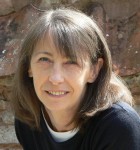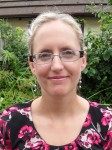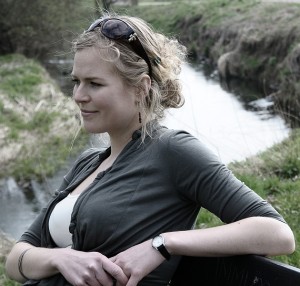An award-winning, externally-facing partnership with research at the core
I don't think of myself as an academic. Before I took on my current role as an Outreach Coordinator within the award-winning Floodplain Meadows research team at the Open University I'd worked for 12 years for the Environment Agency, delivering policy, legislation and proactive conservation projects ‘on the ground’ in Dorset, Wiltshire and a little bit of Hampshire. I'd worked with a wide range of conservation and community partners, occasionally getting cross with flood defence engineers. In short, I came to this job for a change!
Monthly Archives: April 2014
Technology and data driven collaboration – archaeological practice in the 21st Century
Seminar given on March 10th, 2014 by Anthony Beck, OrcID: Honorary fellow - University of Leeds, School of Computing
The text is CC0 (+BY). The illustrations are CC-BY.
Improving impact through Open Science

The Detection of Archaeological residues using Remote Sensing Techniques (DART) project has the overall aim of developing analytical methods for identifying heritage features and quantifying gradual changes and dynamics in sensor responses. To examine the complex problem of heritage detection DART has attracted a consortium consisting of 25 key heritage and industry organisations and academic consultants and researchers from the areas of computer vision, geophysics, remote sensing, knowledge engineering and soil science.
...continue reading
Digital tools for communication and engagement

Creating and sustaining an online research presence
As part of a small team of researchers working within the OU's Public Engagement with Research Catalyst team, Trevor Collins and I have been exploring how researchers across the OU are using digital tools as part of their public engagement with research activities to develop an online presence that sustains public engagement with their research. Here's an update on the work we've been doing...
Research staff surveys
The first step was to include four questions in the Vitae CROS and PIRLS research staff surveys in 2013. In one, we asked respondents to give us an example of a public engagement activity they had undertaken; only 3.5% (six people) identified some form of digital engagement (e.g. blogging, citizen science, podcasting, etc.). This suggests either that respondents are unaware of the potential of digital tools as an engagement technology or do not think of digital technologies as a means for engagement.
Research project interviews
Evolving science communication: theory and practice … what happened next?
On Friday 4th April 2014 the Science Communication Unit (SCU), at the University of the West of England, Bristol held its second Evolving Science Communication conference. I talked about the run up to this conference in a previous post.
The conference celebrated 10 years of science communication programmes based at the SCU and it was lovely to see that around a fifth of delegates on the day were our graduates.
The programme was packed with interesting plenary talks, vibrant presentations and quick paced PechaKucha chats. The Science Communication Unit @SciCommsUWE Twitter feed captures some of the online discussion, and we've also created a Storify of the day.
Engaging research and the ‘Our Story App’
I recently won one the the OU's first ever Engaging Research Awards. When I heard about the engaging research awards, I thought ‘hmn...How can there be an award for something which ought to be integral to any good piece of research? Isn’t engagement with publics the defining characteristic underlying all research endeavours? And how can one judge a piece of research to be more engaged than another?’
The more I thought about it, the more I realised how engagement with publics has been an underlying principle of the Our Story project. The story-making tablet/smartphone app (called “Our Story”) was developed in parallel with my PhD research and has led to a number of projects integral to my doctoral work but also expanding it to other areas, research institutions and publics.
Evolving Science Communication: theory and practice
On Friday 4th April 2014 I’ll be involved in hosting the second conference in our Evolving Science Communication series. You can find details of the first, held five years ago, in this report.
This conference celebrates 10 years of science communication programmes based at the Science Communication Unit (SCU), University of the West of England, Bristol. We’ve been delighted to work with our graduates to design a conference programme that we hope appeals to them, as well as to others currently working in and/or researching the ‘field’.
...continue reading



